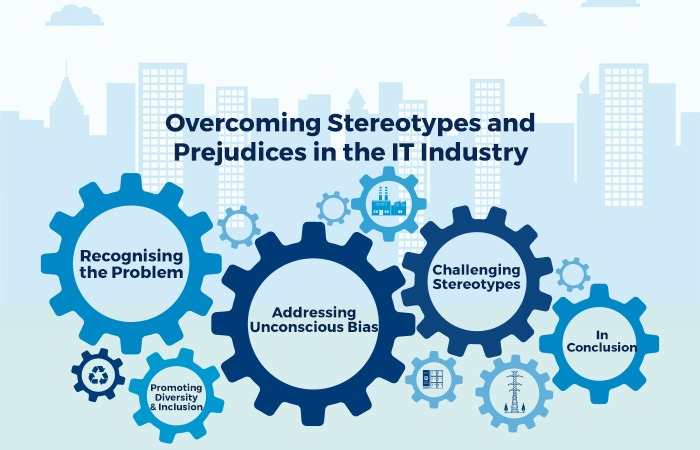The rapidly progressing world has brought significant changes in the landscape. Such changes are an inevitable aspect of daily life. Perchance, the most significant alteration is the massive technological advancements that the world has ever seen. The rapid digital transformation has brought a new status quo, where you have two choices only – adapt or perish.
What is Digital Transformation?
In business, digital transformation utilizes modern digital technology in every aspect of your business. It essentially changes the ways of your daily operation and improves the value of your service provided to the customers. In addition, it also brings a cultural change that constantly defies the present way of life and encourages regular experiments.
The roots of digital transformation can be traced back to the 1940s. In the late 1940s, revered mathematician Claude Elwood Shannon published his article “A Mathematical Theory of Communication.” He single-handedly paved the route for digitization long before it became as popular as it is now. By the 1980s, automation began in the industry, and Tim Berners-Lee invented the World Wide Web (WWW). Afterward, in the 1990s, World Wide Web (WWW) became publicly available, which enabled digitization. After the turn of the millennium, the digital revolution began globally.
Why is Digital Transformation important for companies?
Digital transformation has, undoubtedly, changed the entire landscape of doing business. It assists a business to sustain the increasing customer demands; and, therefore, ensures the organization’s survival in the highly competitive market. Moreover, it improves the company’s ability to compete in the rapidly changing market conditions regarding the endless technological changes.
Organizations willing to accept and adapt to the technological change will gain several benefits such as:
- Businesses will see an increase in efficiency and productivity.
- The utilization of technology will ensure a reduction in costs.
- As the costs decrease, the business will notice an increase in profits.
- Businesses will have access to newer opportunities and revenue streams.
- Businesses might be able to launch new products and services on various digital platforms.
- Improved Transparency
- Superior Customer Experience
- Improved Employee Engagement and Better Organisation Culture
- Enhanced Flexibility
- Effective Supply Chain Management (SCM)
- Gain of Competitive Advantage over Rivals
- Better Business Operating Model
What can you do to implement Digital Transformation within your company?
The benefits are certainly what all entrepreneurs want. As such, you must be wondering how you can implement the transformation in your business. The quick steps below should give you a gist of what to do to attain your goals.
- Ensure you have a team that is not averse to changes and can adapt quickly. The involvement of every level in your organization should be a top priority.
- Encourage frequent, seamless collaboration between internal departments, and break down possible silos.
- Arm your employees with a data infrastructure that they can use to improve productivity and increase growth. It will also help in real-time decision-making.
- Ensure all your business systems are integrated flawlessly. As such, automation will boost efficiency and improve the overall customer experience.
- Encourage frequent innovations. Otherwise, your team will not be able to deal with the digital disruptions that come their way.
- Locate tech partners who have experience in dealing with SMB. You can hire smaller IT teams if you are a small business. SMB requires different IT approaches compared to large organizations. As such, you should enlist the aid of tech partners, consultants, and vendors, who have sufficient experience in working with small or medium businesses.
Quick tips to keep in mind when you introduce Digital Transformation in your business
- Select where you want to begin
It would be ideal if you chose to focus on a specific part of your business during this transformation procedure. For instance, Peter Veash, the CEO of The Bio Agency, informed that a census-wide survey found that innovation, operation, marketing, and customer experience have the utmost potential to yield an early payback.
- Ensure a better user experience
The primary goal is to improve user experience through digital transformation. Hence, keep your attention on your consumer and user journey.
- Building a culture that is not afraid of changes
Change is a constant in the modern world. Yet, many people are averse to it. As such, you should develop a culture in your business where people embrace the changes and adapt easily.
- Changes come from the top of the hill
A study discovered that 75% of people believe that digital transformation should be initiated by senior management. Therefore, the senior IT manager should lead the charge towards the revolutionary digital transformation.
- Work through the disruptions
The advancements in technology also bring digital disruptions, such as smartphones and wearable tech. You should be prepared to work through these challenges and adapt accordingly. As a result, you should meet the consumers’ needs and improve their digital experience.
Techaisle’s 2018 survey of 1600 businesses reported that 42% of small and medium businesses had considered digital transformation as part of the future. Meanwhile, 82% of them had already begun the transformation process. It shows that businesses are embracing the changes and planning according to them. Therefore, entrepreneurs of SMBs should follow course if they wish to survive and thrive in the increasingly competitive market.













